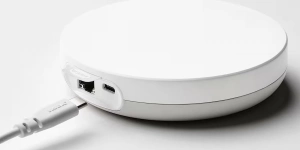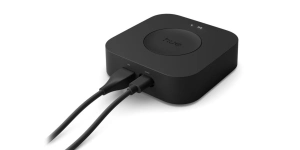Quectel, a global leader in cellular IoT solutions, has announced the release of new modules designed for the smart home, signaling a strategic move into the consumer market. The company, which specializes in cellular IoT technology and ranked as the top global provider in the second quarter of 2025 by Counterpoint Research, is now betting on the growth of the Matter and Thread ecosystem.
The launch of Quectel’s KGM133S series of modules highlights a growing trend of companies from the industrial and telecommunications sectors entering the smart home space, endorsing Matter as the unifying standard for the future.
Sharing the Matter vision
The new modules are designed to address a core challenge in the smart home industry: protocol fragmentation as the firm stated in the press release. Quectel Vice General Manager Sun Yanming identified this as a “core pain point” for the industry, calling the Matter protocol “the key to cracking this problem.”
“The Matter over Thread module launched by Quectel this time meets the industry’s needs by ‘breaking down ecological barriers with Matter and strengthening the connection foundation with Thread’,” Sun said.
The press release also suggested that the adoption of Matter by major companies such as Apple, Google, Amazon, Samsung, Signify and Ikea now provides strong encouragement for more players to come on board.
Pre-assembled accelerator
A module, like the one from Quectel, is like a pre-assembled “engine kit.” It takes that raw chip and packages it on a tiny, ready-to-use board with all the necessary supporting components and an optimized antenna design. Most importantly, the module comes pre-certified for certain tech stacks.
This means a company building, for example, a smart lock can simply integrate Quectel’s module into their design and partly skip the most difficult and costly parts of the RF engineering and regulatory approval process.
Rival firms like Tuya Smart and eWeLink are also providing such modules to speed up Matter device development, allowing device makers to focus on their product’s core features instead of reinventing the wireless hardware and base code.
Key spec
The KGM133S series is based on the Silicon Labs EFR32MG24 chipset and supports the Matter 1.4 specification, which is a mainstream option for Matter-over-Thread devices.
The module features high receiver sensitivity and an optional output power of up to +19.5dBm, ensuring stable signal transmission even through walls or in environments with heavy radio interference. With up to 26 GPIOs that can be used for I2C, UART, and SPI, the module can connect to a wide array of external sensors and peripherals, making it suitable for complex device designs.

Provided with 256 KB of SRAM and 1,536 KB, 2.5 MB or 3.5 MB of flash, the series is available in two small LGA packaged models: one with a connector for an external antenna and the other with an integrated PCB antenna to fit into compact product housings.
It supports a wide operating temperature range of -40C to +105C, making it reliable even in extreme environmental conditions, useful for certain specialized devices.
More cellular devices with Matter
Quectel’s entry into the Matter space is significant because of the expertise it brings from the demanding cellular industry. The company has deep experience in navigating complex global certifications and managing a massive supply chain, which can help smart home brands get new products to market faster.
Furthermore, Quectel’s background opens the door for future hybrid devices that could combine Matter’s local control with a cellular backup, ensuring devices like security systems can send alerts even if home internet service is down. This launch represents a strong endorsement of the Matter standard from a major player in the broader IoT landscape.
(Source: Quectel, Counterpoint Research; Image Source: Quectel)



